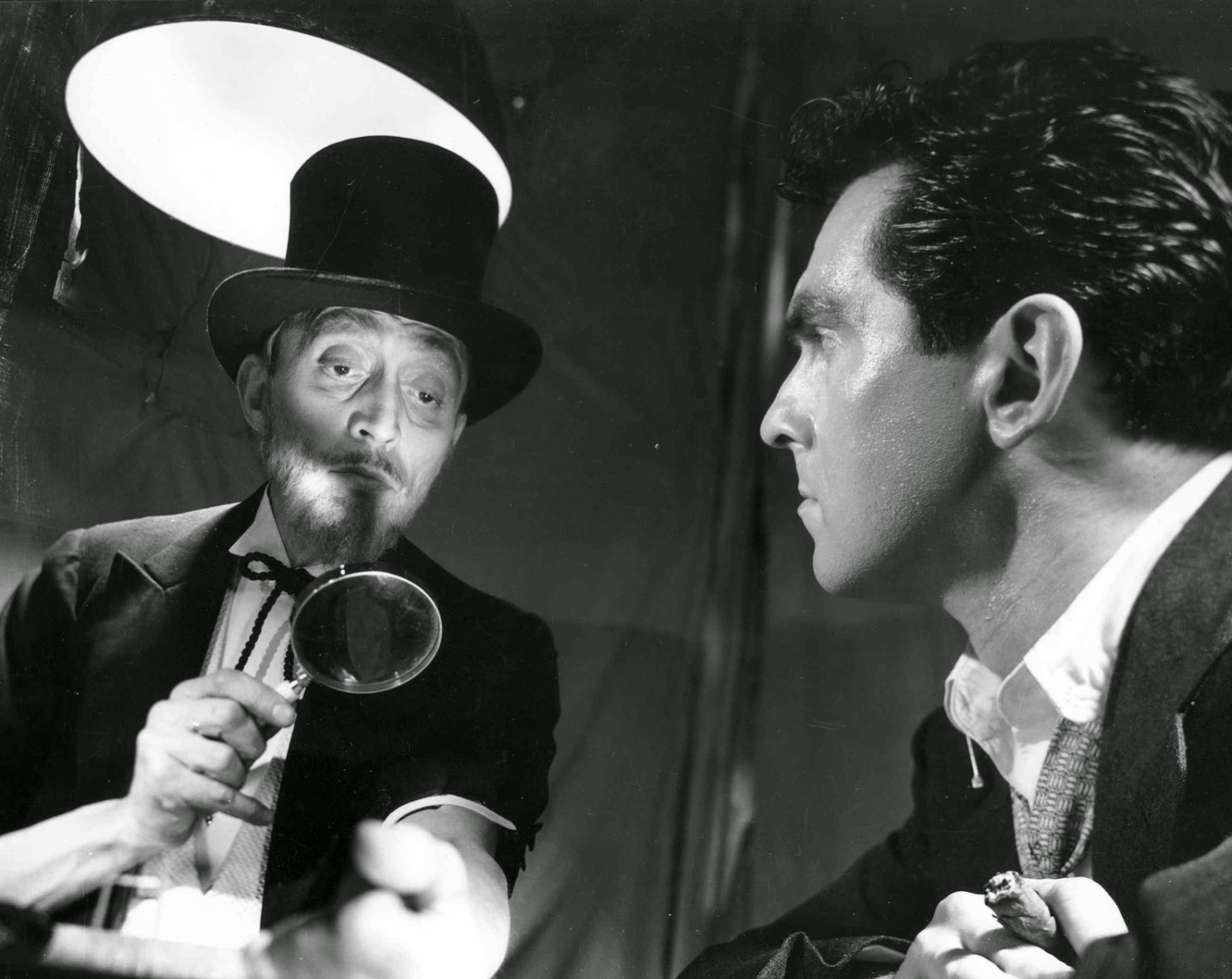Under the Magnifying Glass
Mr. Arkadin (1955) has always been a difficult film for Welles fans. Visually and thematically, it plays out like a baroque variation on Citizen Kane (1941). Once again, Welles portrays a wealthy megalomaniac who attempts to control how others view him, even to the point of buying their adoration. But unlike Citizen Kane, Mr. Arkadin’s technical flaws prevent the story from completely jelling. It also hasn’t helped that the film could only be seen in blurry, incomplete prints with sometimes obvious voice-overs (Welles personally dubbed-in the voices for 18 of the minor characters). Most critics wrote off Mr. Arkadin as a failed attempt to rekindle Welles’ creative flames.
Even sympathetic Welles scholars felt the need to mix their praise for the film with a strong disappointment in its shortcomings. Here’s what Joseph McBride had to say in his book Orson Welles:
If The Stranger is self-parody, albeit unconscious, Mr. Arkadin is something more dangerous and more interesting: a work, like Sternberg’s The Devil Is a Woman or Ford’s Donovan’s Reef, in which the artist pushes his style past its limits, treating his most personal themes self-consciously, with a measure of irony, and in a manner not pretending to physical or psychological realism. The result, if successful, is a refinement of the artist’s themes to a high pitch of intensity, an intoxicating liberation. The given story is kept purposefully simple so as not to hinder the free expression of character and motif. The pitfalls of such excess are obvious, though for Sternberg and Ford the problem is less acute because on a basic level the concerns of the director and the general audience coincide . . . Welles pretends to no such level of common response, and in this we may see the essential failure of Mr. Arkadin.
We may be due for a major reassessment of this often overlooked film. Criterion has released a three-disc DVD set it has optimistically titled The Complete Mr. Arkadin. The package contains no less than three versions of the film: the 99-minute Corinth version, which is the earliest English-language version; the 98-minute Confidential Report version, which is the European release that was completed by producer Louis Dolivet after he and Welles had split; and a new 105-minute comprehensive version that may be as close as we’ll ever come to what Welles had hoped the film might become.
The DVD set also includes a book version that in the true Wellesian tradition may — or may not — be a work by Orson Welles, since it appears to be “an unaccredited English translation of a French text adapted and translated from Welles’ writing by a friend and ghostwriter.” Intrigued? Welcome to the many mysteries that surround this unusual project.
Mr. Arkadin
(1955; directed by Orson Welles)
The Criterion Collection (DVD)
Wednesday, April 20 at 12:15 a.m. eastern (late Tue. night) on Turner Classic Movies
Reviews